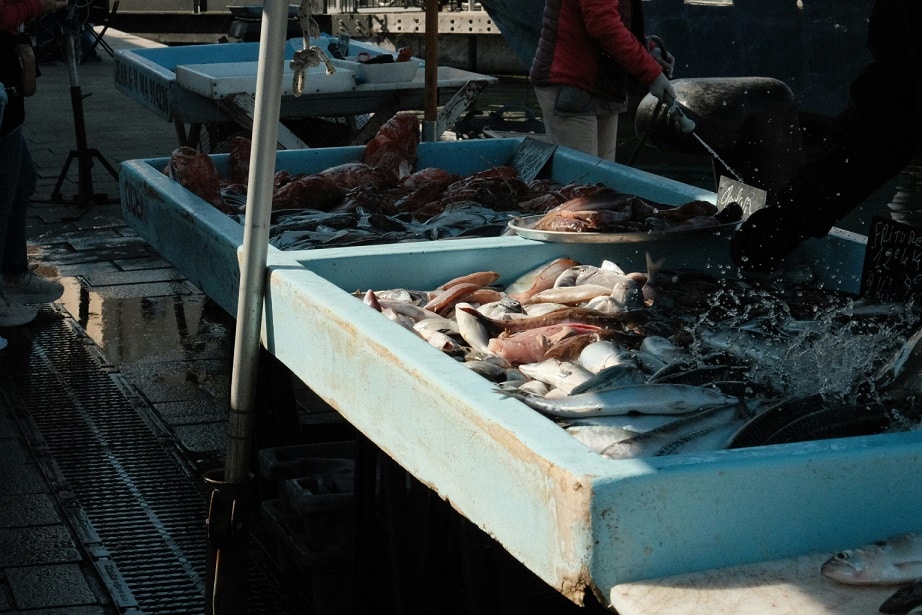
1. U.S. Cracks Down on Shark Fin Smuggling in Seafood Supply Chain Sweep
Washington, D.C., United States — U.S. officials are ramping up inspections at ports to stem the tide of illegal shark fin trade hidden within global seafood shipments. A recent multi-agency enforcement initiative led to significant seizures of unreported fins and underscored systemic flaws in seafood traceability.
Under the U.S. Shark Fin Sales Elimination Act and SIMP (Seafood Import Monitoring Program), authorities now target shipments flagged for high-risk species or suspicious supply chains. Advocates say these efforts are essential to protect declining shark populations and prevent laundering through mislabeling or mixed cargo. The initiative also signals a broader move toward digital transparency tools and tougher port-based scrutiny in fighting wildlife trafficking.
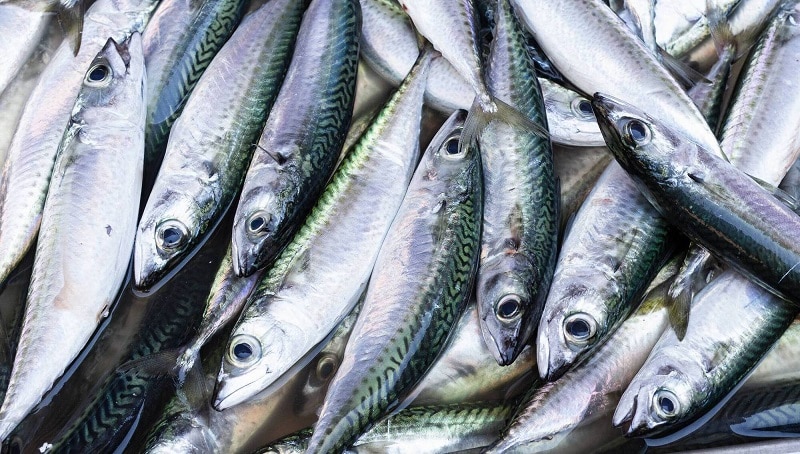
2. World’s Oceans at Risk as Mackerel Stocks Teeter on Collapse
London, England — Atlantic mackerel stocks are nearing collapse, experts warn, after years of overfishing driven by inflated quotas and limited international oversight. Once certified as sustainable, mackerel lost its eco-label in 2019 and has since faced intense pressure from Iceland, the Faroe Islands, and Norway—all setting unilateral quotas beyond scientifically recommended limits. Combined catches now far exceed sustainable thresholds, sparking alarm from researchers and conservation groups.
The fish’s decline jeopardizes ecosystems and commercial fisheries, with the North East Atlantic Fisheries Commission criticized for failing to broker effective agreements. The EU has called for urgent quota reductions, but national interests continue to dominate negotiations. With mackerel vital to marine food webs and economies alike, scientists say the window for recovery is closing fast unless coordinated action is taken.
Thank you for your generous gift that will help us continue the production of this weekly, free publication
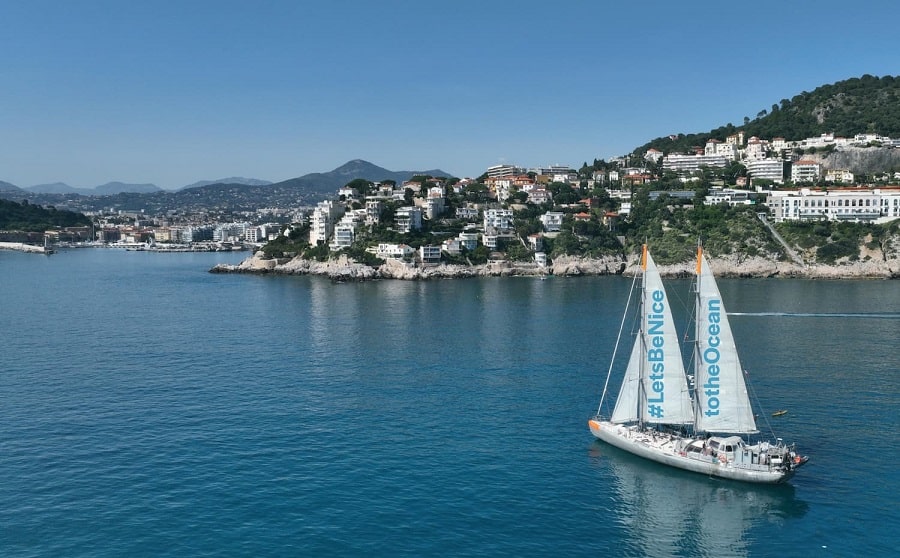
3. France Prepares to Host Pivotal UN Ocean Conference in Nice
Editorial Note: Sea Save Foundation members will be on-site and working at the United Nations Ocean Conference
Nice, France — France is gearing up to host the third United Nations Ocean Conference (UNOC3) in Nice, set to gather global leaders, scientists, and NGOs to accelerate progress on ocean protection. Organized in partnership with Costa Rica, the conference will spotlight marine biodiversity, pollution, climate resilience, and equitable ocean governance.
Scheduled for June 2025, the event is expected to push countries toward stronger commitments on Sustainable Development Goal 14, which targets the conservation and sustainable use of oceans. Fondation Tara Océan, a key partner, highlights the conference’s role in advancing science-policy collaboration and monitoring marine protection goals. France aims to position UNOC3 as a springboard for ambitious global action as the world nears 2030 conservation targets.
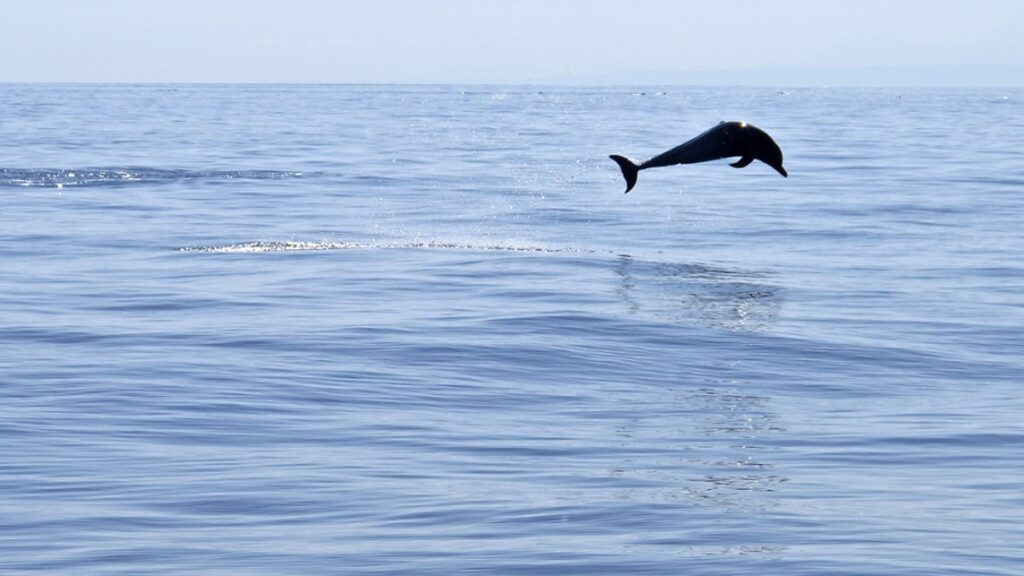
4. Can We Fund the High Seas? Experts Push to Power BBNJ (High Seas Treaty) Agreement
New York, USA — Experts are calling for urgent financial innovation to operationalize the UN’s high seas biodiversity treaty, known as the BBNJ Agreement. Writing for the SDG Knowledge Hub, authors outline the funding needed to implement this groundbreaking treaty, which covers conservation of marine biodiversity beyond national jurisdictions. Proposed mechanisms include a dedicated trust fund, sustainable finance initiatives, and public-private partnerships to support capacity building, marine protected areas, and technology transfer.
The authors stress that the treaty’s success hinges on delivering accessible, long-term financial support for developing nations. Without it, critical elements of the agreement—like scientific cooperation and equitable benefit-sharing—could stall. As momentum builds following the treaty’s 2023 adoption, attention is shifting from political will to practical financing.
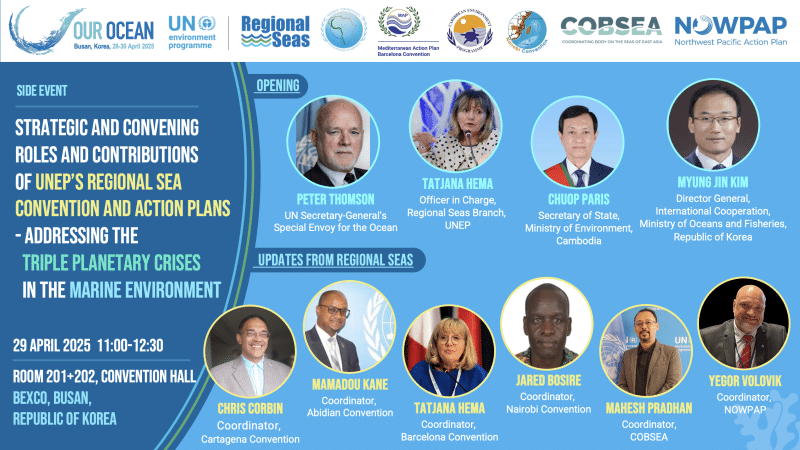
5. UNEP’s Sea Conventions Seek to Supercharge Global Ocean Cooperation
Nairobi, Kenya — The UN Environment Programme (UNEP) gathered stakeholders for a strategic conference spotlighting the powerful role of its Regional Seas Conventions in ocean protection. Held ahead of the third UN Ocean Conference, the event emphasized how regional collaboration can drive action on Sustainable Development Goal 14. Representatives from over 18 conventions discussed scaling up marine pollution prevention, boosting biodiversity, and creating legally binding agreements on ocean governance.
UNEP Executive Director Inger Andersen noted that these partnerships could bridge gaps between national ambitions and global targets. Attendees called for stronger funding mechanisms, better data sharing, and inclusive decision-making. The forum also addressed synergies between climate adaptation and marine protection, reinforcing UNEP’s pitch for ocean solutions that are regional in implementation but global in impact.
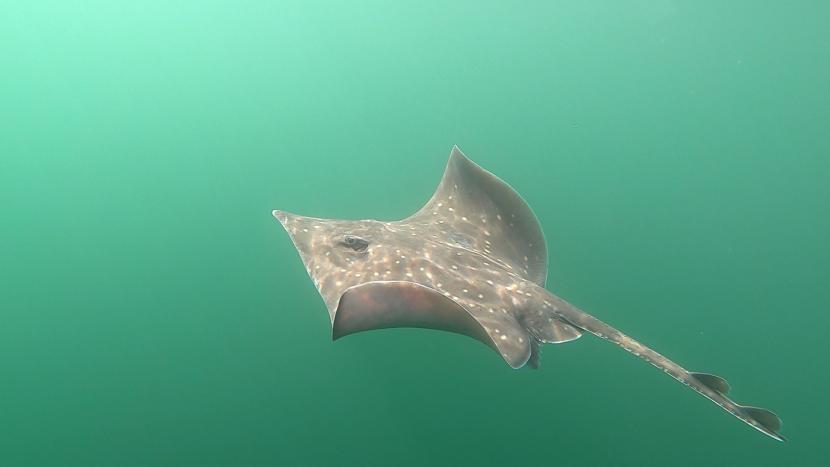
6. Facial Recognition AI Could Rescue Endangered Flapper Skate
Scotland, United Kingdom — A new facial recognition tool developed by British scientists is offering fresh hope for the critically endangered flapper skate, a bottom-dwelling species native to UK waters. Researchers from St. Andrews and Marine Scotland Science have crafted an AI-based identification system that uses the unique spot patterns on each skate’s face—essentially giving the animal a digital fingerprint.
The system aims to improve population tracking and reduce intrusive tagging methods. Conservationists believe this innovation could fill major data gaps, especially in areas like Scotland’s Inner Sound, a key habitat under threat from development. With fewer than 1,000 flapper skates estimated to remain in the wild, this technology may help guide better protections and habitat safeguards.
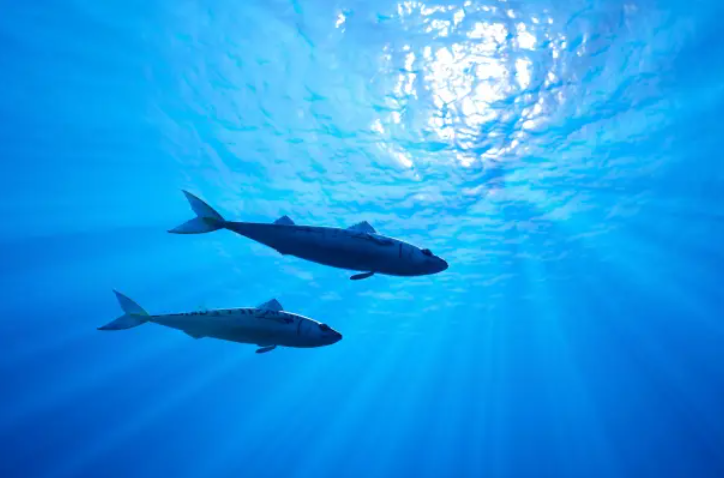
7. Western Pacific Nations Unite to Shield Ocean Biodiversity
Manila, Philippines — Countries in the western Pacific region have launched a coordinated initiative to preserve their marine biodiversity, focusing on coral reefs, mangroves, and threatened species. Led by the Sub-Commission for the Western Pacific (WESTPAC) under UNESCO’s Intergovernmental Oceanographic Commission, the initiative prioritizes science-based action across Southeast Asia and the Pacific Islands.
During the high-level gathering, leaders from Indonesia, Vietnam, the Philippines, and others emphasized the need for stronger data systems and regional research networks to guide marine conservation. The project includes real-time monitoring platforms and regional ocean observation stations. UNESCO hailed the move as an urgent response to ocean acidification, warming, and overfishing. With climate stress and illegal fishing escalating, this regional effort aims to backstop biodiversity collapse before it’s too late.
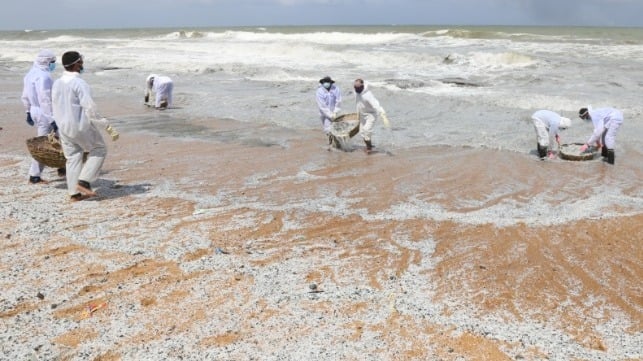
8. EU Finalizes Crackdown on Plastic Pellet Pollution at Sea
Brussels, Belgium — The European Council and Parliament have reached a deal on landmark legislation aimed at reducing microplastic pollution from plastic pellets, a major but often invisible threat to marine ecosystems. Under the agreement, companies that produce, transport, or use plastic pellets must adopt strict handling protocols to prevent spills, with compliance tied to third-party auditing and certification.
These pellets, commonly lost during shipping and processing, are among the top sources of primary microplastics in the ocean. The new rules, set to take effect in 2026, prioritize both preventive action and accountability across the plastics supply chain. EU lawmakers say the legislation will significantly cut ocean-bound microplastics while creating a global benchmark for corporate environmental responsibility.
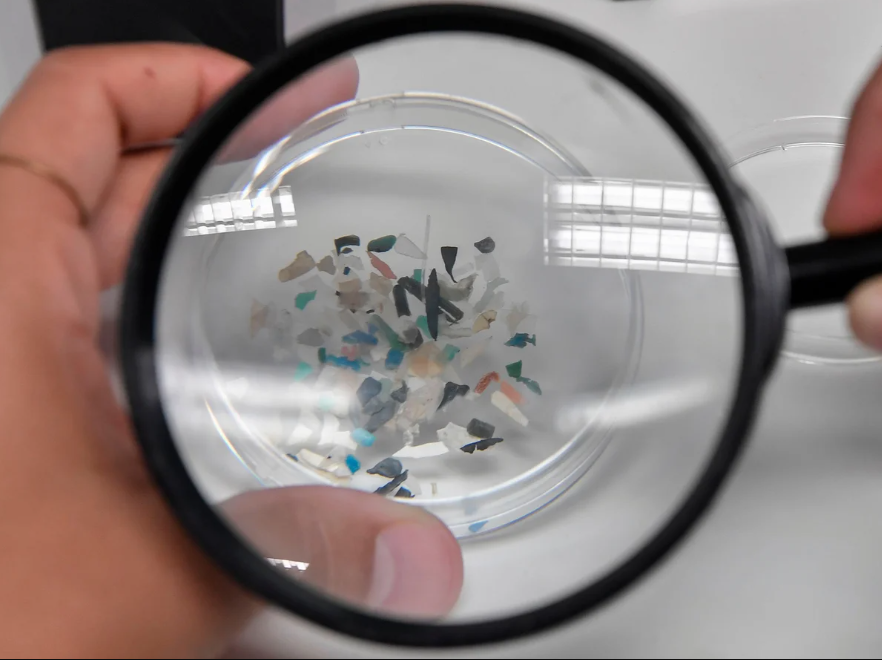
9. Microplastics in Lungs Linked to Increased ICU Stays, Landmark Study Finds
London, England — A peer-reviewed study published in The Lancet Respiratory Medicine has found microplastics embedded in human lung tissue for the first time—and their presence is linked to more severe health outcomes. Researchers in the United Kingdom analyzed lung biopsies from intensive care patients and detected common plastic types such as polyethylene and polyvinyl chloride.
Patients with microplastic-laden tissue were significantly more likely to require mechanical ventilation and had longer ICU stays. While the study stops short of proving causality, it underscores urgent concerns over airborne microplastics as a public health threat. The findings add to growing evidence that microplastic pollution—once considered primarily a marine issue—could have far-reaching impacts on human health, particularly in urban and industrial settings.
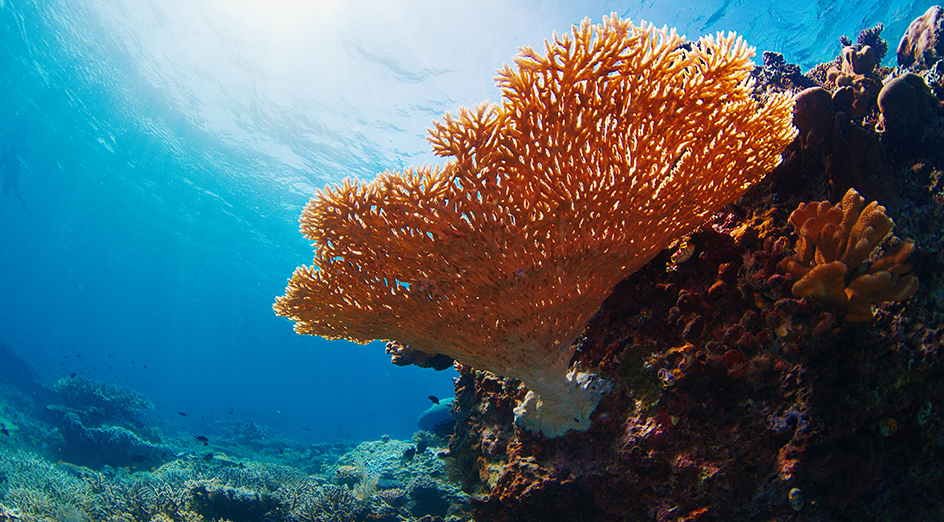
10. Experts Warn Coral Restoration Alone Can’t Save Global Reefs
Perth, Australia — Marine scientists at the University of Western Australia are calling for a stark reassessment of coral restoration strategies, warning that current efforts are inadequate to counteract the mounting pressures of climate change. A new report released this month argues that coral transplantation and reef gardening projects are often small in scale, rarely monitored for long-term outcomes, and fail to address root causes like ocean warming and acidification.
The researchers stress that without substantial reductions in fossil fuel emissions, even well-funded restoration projects will not prevent reef decline. They advocate for a pivot in public messaging and investment, urging governments and donors to pair restoration with aggressive climate action and reef protection policies. The team also recommends tighter global coordination to ensure restoration projects align with broader conservation goals.
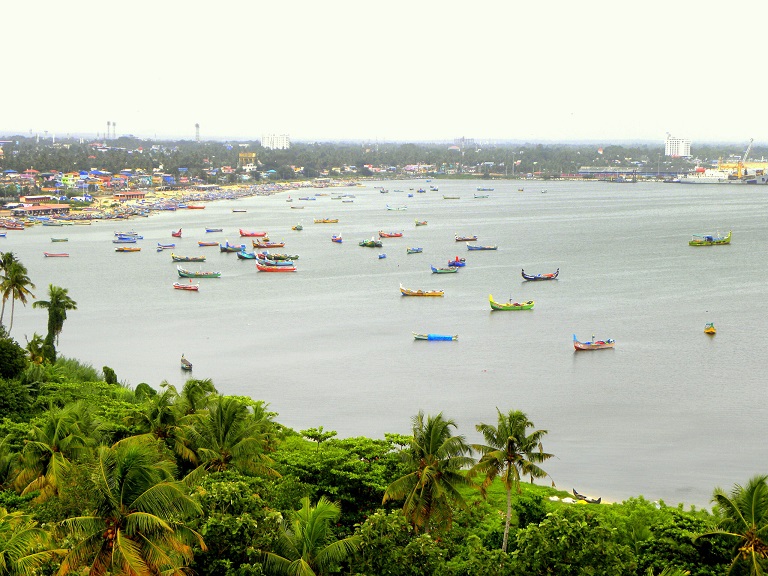
11. Understanding India’s Push for a Sustainable Blue Economy
New Delhi, India — As global focus intensifies on ocean-based sustainability, India is advancing its vision for a “Blue Economy” rooted in equitable and ecological growth. In a new explainer by Mongabay India, the country’s efforts to balance marine conservation with development are laid out, emphasizing policies that integrate fishing, tourism, offshore energy, and marine biodiversity.
India is working to adopt the Blue Economy Framework crafted by the Economic Advisory Council to the Prime Minister, which calls for inclusive coastal livelihood development, research funding, and marine spatial planning. The government is also preparing to collaborate with international partners to support sustainable ocean use while addressing pollution and climate threats. The article highlights gaps in current policy implementation and calls for better data collection and coordination between ministries to turn this economic vision into a truly sustainable reality.
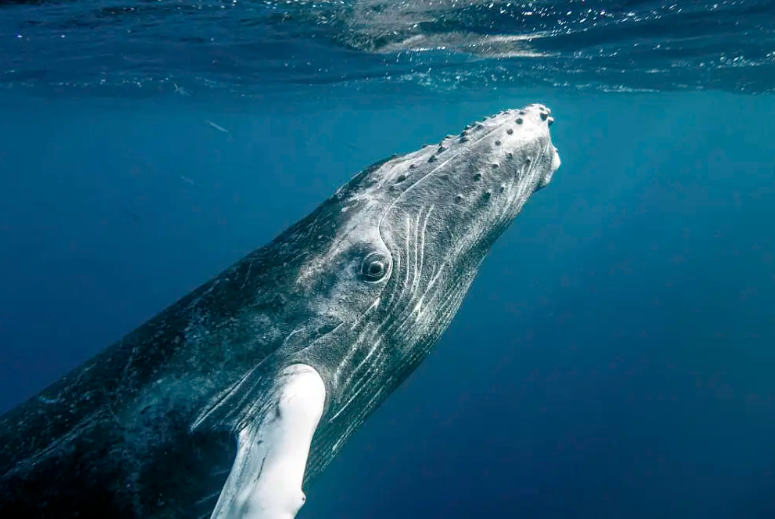
12. Whale Tracking Research Offers New Insights into Migration Patterns
Bar Harbor, Maine — Researchers from the College of the Atlantic are leveraging satellite tags to study large whale movement in the North Atlantic, helping close data gaps in marine mammal conservation. The ongoing study, part of the Allied Whale program, is focused on the migration patterns of fin and humpback whales. Tagging efforts off the coast of Maine are revealing how these species use critical ocean habitats, informing protection efforts in both U.S. and international waters.
Data collected so far is reshaping understanding of whale distribution and behavior, with implications for vessel speed regulations, noise management, and transboundary conservation measures. The initiative also emphasizes collaboration with government agencies and other research institutions to better protect endangered whales from growing threats like shipping traffic, fishing gear entanglements, and climate-driven shifts in prey.

13. Malaysia’s Money-for-Nature Program Gains Ground Amid Data Gaps
Kuala Lumpur, Malaysia — Malaysia’s Ecological Fiscal Transfer (EFT) program is being hailed as a promising mechanism for financing conservation, but a new analysis reveals mixed results. The EFT incentivizes states to protect forested areas by rewarding them with federal funds. While payouts have grown—RM 732 million allocated from 2019 to 2023—the program faces challenges in transparency and measuring ecological outcomes.
Researchers found limited evidence on how effectively funds are used to protect biodiversity. A key issue is the lack of comprehensive data on the conservation impacts of state-led efforts. Still, experts say the EFT model holds potential to inspire similar conservation finance programs across Southeast Asia, provided implementation and monitoring are improved.
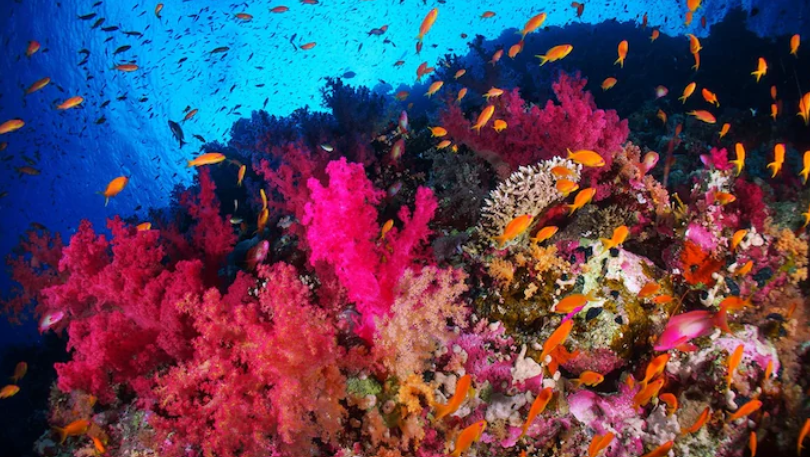
14. AI Joins Coral Quest in Indian Seas
Kochi, India — Indian marine scientists are turning to artificial intelligence to decode coral mysteries in the country’s waters. Led by researchers at the National Centre for Coastal Research and the Indian National Centre for Ocean Information Services, the initiative uses AI to analyze video and sonar data, drastically speeding up coral identification.
Traditional coral monitoring is labor-intensive and slow, but machine learning models are now being trained to detect coral types, bleaching patterns, and even subtle growth changes. The new system is expected to enhance reef conservation strategies, especially along India’s eastern coastline. Scientists say the AI approach not only accelerates coral mapping but also helps build a stronger case for protective measures in climate-vulnerable zones.
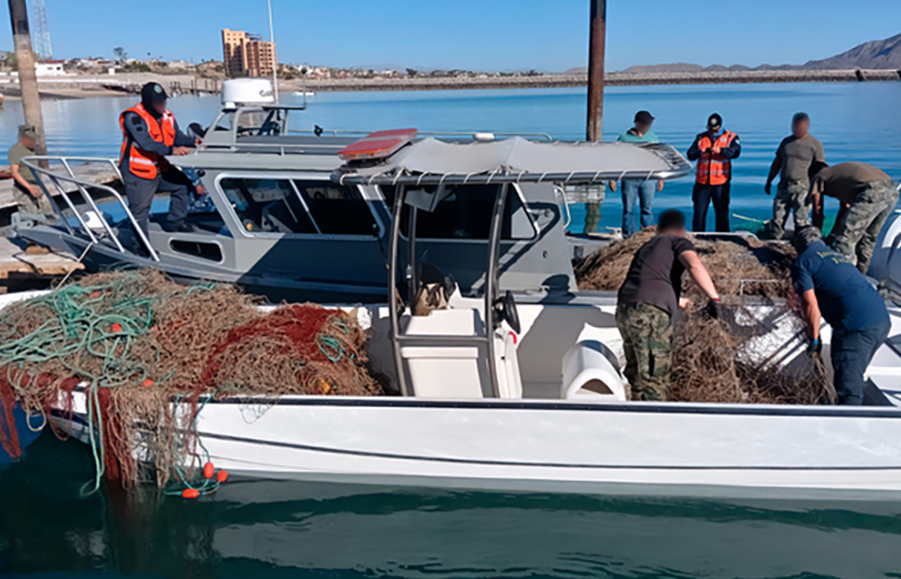
15. Mexican Officials Remove Deadly Gillnets to Save Endangered Totoaba
San Felipe, Mexico — Mexican law enforcement has dismantled illegal gillnets from the Upper Gulf of California and rescued endangered totoaba still caught in the gear, according to a statement by the Secretariat of the Navy. The operation, carried out in collaboration with the environmental protection agency PROFEPA, targeted a notorious area where totoaba poaching fuels organized wildlife trafficking.
Known as the “cocaine of the sea,” totoaba bladders fetch high prices in black markets abroad. The nets pose a dual threat—killing not only totoaba but also the critically endangered vaquita porpoise. The sweep included aerial patrols, vessel deployment, and the recovery of 12 totoaba, three of which were released alive. Officials emphasized that this multi-agency response is part of a wider crackdown on illegal fishing in Mexico’s marine protected zones.
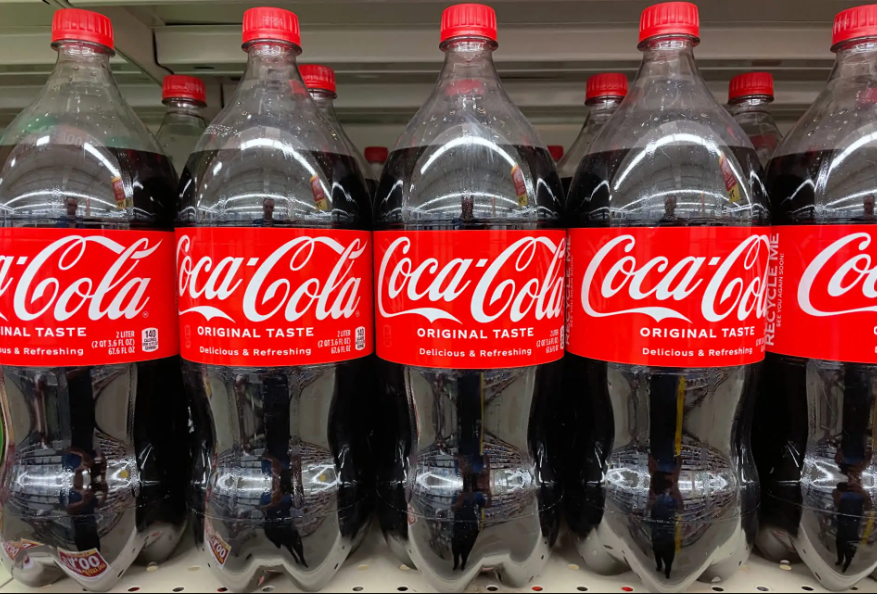
16. Coca-Cola Joins UN Pact to Tackle Plastic Waste — Will It Stick?
Atlanta, United States — Coca-Cola has pledged to support the United Nations’ global plastic treaty initiative aimed at ending plastic pollution by 2040. Despite being the world’s top plastic polluter for years, Coca-Cola’s endorsement of the Intergovernmental Negotiating Committee’s efforts signals a shift toward sustainability. The company claims it is committed to a circular economy by increasing recycling and reducing virgin plastic use.
However, environmental groups remain skeptical, pointing out Coca-Cola’s historic reliance on single-use plastics and lobbying against stricter regulations. Critics argue that without binding targets and enforcement, voluntary commitments fall short of solving the crisis. With the next round of treaty negotiations set in Ottawa, Coca-Cola’s participation puts pressure on other major producers to follow suit—or face growing public backlash.

17. PepsiCo Sued Over Plastic Pollution in Landmark Green Lawsuit
San Francisco, United States — PepsiCo is being sued by environmental nonprofit Earth Island Institute for its role in global plastic pollution, marking one of the most aggressive legal challenges yet against a consumer goods giant. Filed in California, the lawsuit alleges PepsiCo misled the public by branding itself as eco-conscious while continuing to be one of the top plastic polluters.
The complaint cites the company’s use of single-use plastics as a contributor to ecological and public health harms and calls for clear labeling, financial restitution, and changes in production practices. Earth Island claims the company violated state laws on unfair business practices and false advertising. Legal experts say the case could set a precedent for holding corporations accountable for environmental impacts through state consumer protection laws.
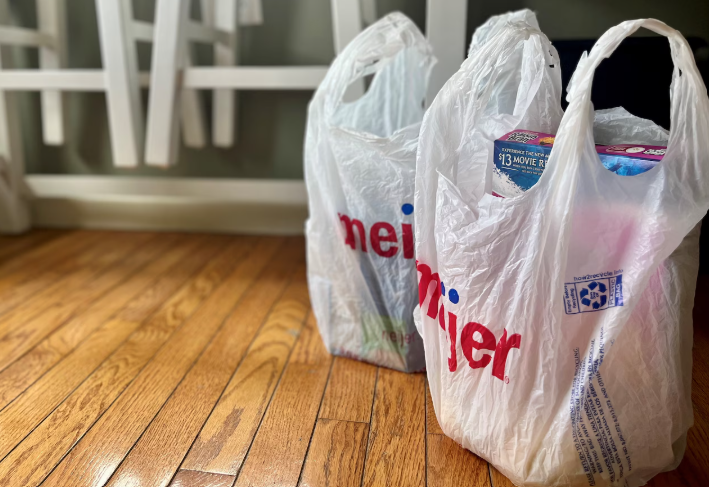
18. Michigan Lawmakers Push to Overturn Plastic Bag Ban Ban
Lansing, Michigan — Democratic legislators in Michigan are reviving efforts to repeal a 2016 law that blocks local governments from banning plastic bags or imposing fees on them. The renewed push follows increasing pressure from municipalities seeking to address plastic pollution at the local level. House Bill 4532, reintroduced by Rep. Felicia Brabec, would allow cities and counties to implement their own rules to curb single-use plastics.
Supporters argue the legislation restores local control and responds to public demand for sustainable alternatives. Business groups oppose the move, citing concerns over compliance costs and potential confusion. Environmental advocates say overturning the preemption is critical for fighting the rising tide of plastic waste in the Great Lakes and beyond.
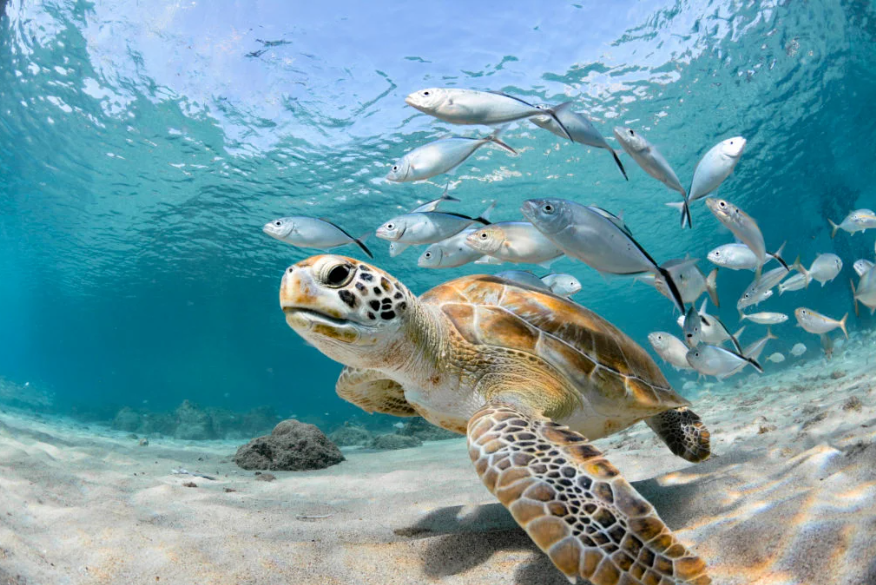
19. Nigeria’s Ocean Ecosystems Face Collapse Without Urgent Marine Protections
Lagos, Nigeria — Conservationists warn that Nigeria’s rich coastal ecosystems are nearing collapse due to a lack of marine protected areas (MPAs) and ineffective enforcement of existing environmental laws. Experts highlight how the degradation of mangroves, overfishing, oil pollution, and illegal sand mining are depleting biodiversity and endangering local livelihoods. With only 0.1% of Nigeria’s maritime territory protected, advocates call for a significant scale-up to meet the 30×30 global conservation target.
Professor Magnus Ngoile urged government officials to prioritize ocean sustainability, citing the nation’s economic reliance on fisheries and coastal resources. Meanwhile, NGOs like the Nigerian Conservation Foundation are rallying for clearer legal frameworks and stronger coordination across federal and state authorities. As the ocean crisis deepens, Nigeria’s failure to implement marine protections threatens both ecological and food security in West Africa’s most populous nation.
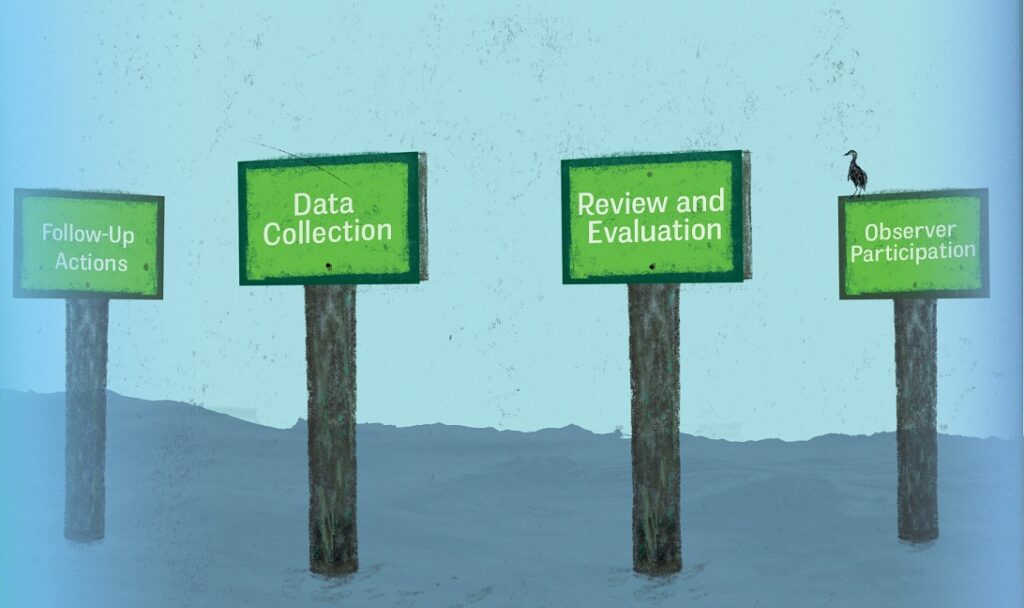
20. Experts Say Global Fisheries Need Better Data to Curb Illegal Catches
Washington, D.C., United States — Strengthening accountability in international fisheries hinges on better data collection and transparency, according to a new analysis by The Pew Charitable Trusts. With millions of tons of fish caught globally each year, gaps in vessel monitoring, landing reports, and bycatch documentation have fueled overfishing and illicit trade. The report highlights that fewer than half of regional fisheries management organizations (RFMOs) require basic catch documentation or third-party observers.
Pew’s recommendations include mandating electronic monitoring on industrial fleets, harmonizing data standards across jurisdictions, and increasing public access to compliance records. The group warns that without timely and accurate data, global efforts to manage shared fish stocks—especially those migrating across borders—will remain weak and open to abuse. The call to action is aimed at both governments and RFMOs ahead of the upcoming UN Ocean Conference.
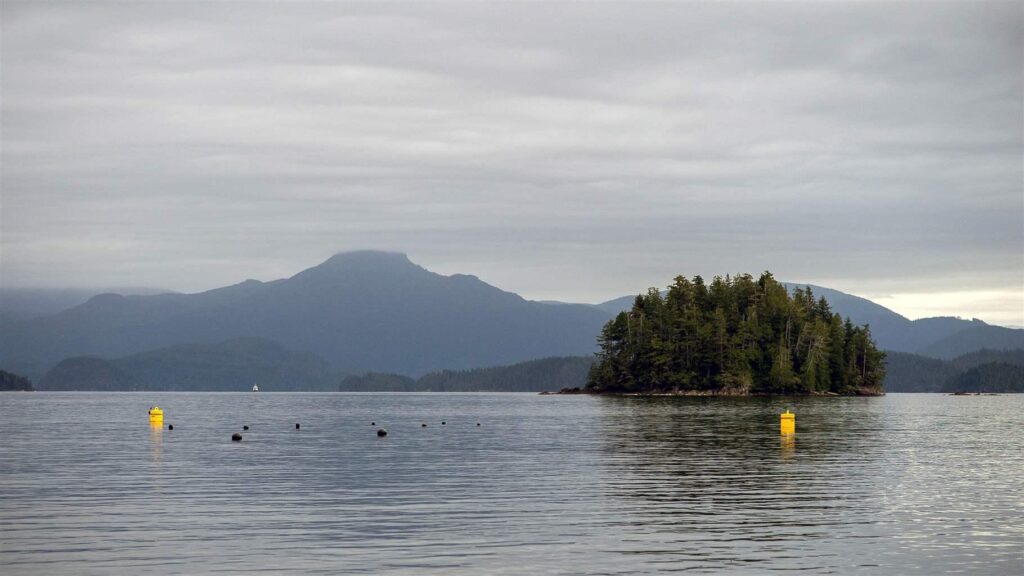
21. Seaweed Boom Spurs Scientists to Fill Massive Research Gaps
As seaweed aquaculture surges globally, researchers are racing to fill major knowledge gaps about its environmental impacts and long-term sustainability. A new review by The Pew Charitable Trusts urges better coordination between scientists, governments, and the private sector to ensure seaweed farming can support climate resilience without unintended harm.
While seaweed is praised for carbon absorption, coastal protection, and alternative livelihoods, the study notes limited research on invasive species risks, habitat displacement, and nutrient cycling. Pew calls for standardized monitoring, investment in interdisciplinary science, and inclusion of Indigenous knowledge. The U.S., Indonesia, and the EU are expanding farming operations, but experts warn the industry must not outpace regulation. As the blue economy grows, filling these knowledge gaps could determine whether seaweed becomes a climate solution or another ocean stressor.
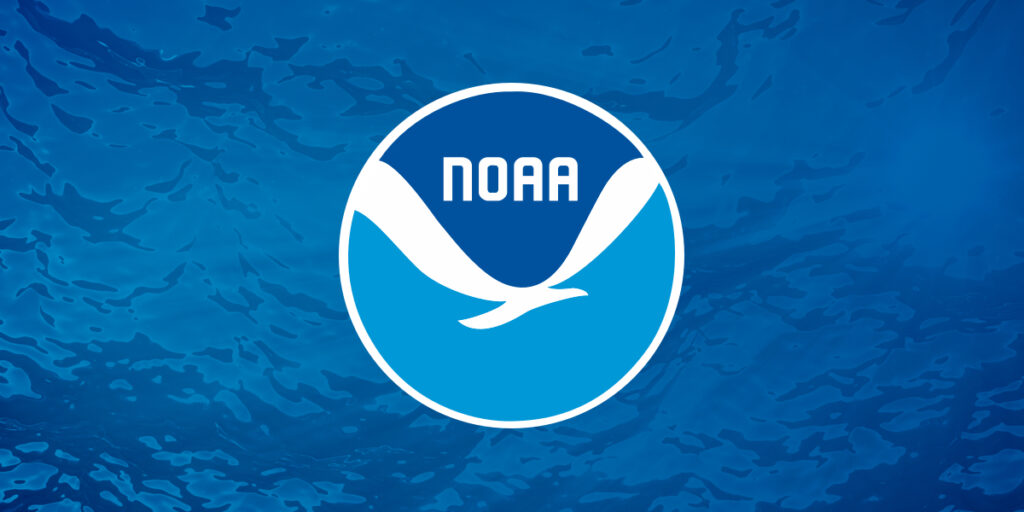
22. NOAA Adjusts Pacific Cod Quota to Support Small-Scale Jig Fishers
Juneau, Alaska — The National Marine Fisheries Service has announced an in-season total allowable catch (TAC) adjustment for Pacific cod in the Central Gulf of Alaska. The move allocates 1,653 metric tons to vessels using jig gear, a more selective and environmentally friendly fishing method. The quota shift aims to ensure equitable access for small-scale fishers and sustain economic activity in the region while preserving ecological balance.
Jig gear, which involves single lines with hooks, significantly reduces bycatch and seabed disruption compared to trawling. NOAA Fisheries noted that this adjustment aligns with the North Pacific Fishery Management Council’s policy to promote gear diversity and support coastal communities. The updated quota became effective immediately, reinforcing the agency’s responsive, science-based management approach amid shifting fish stock conditions in Alaskan waters.
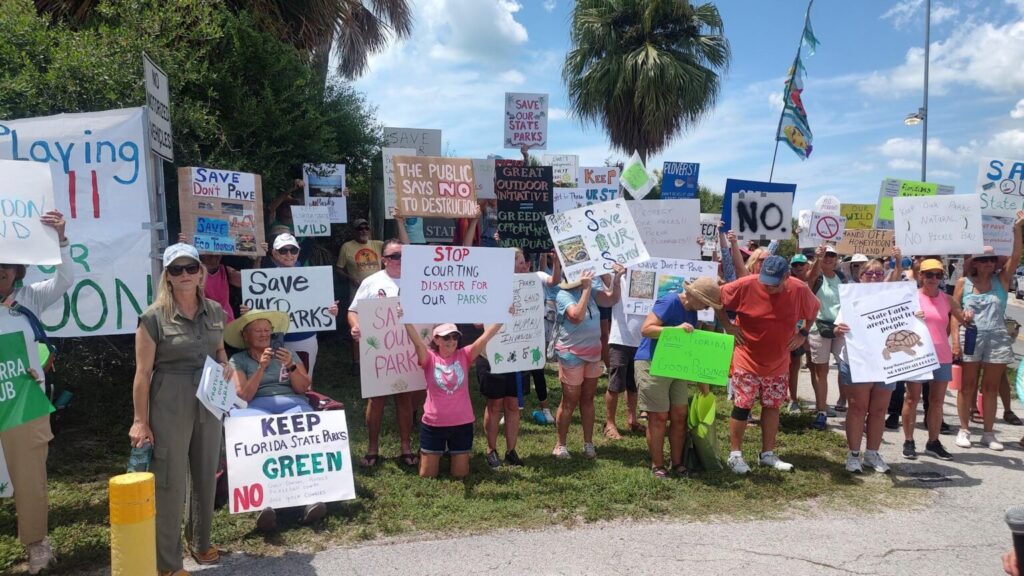
23. Florida Bill to Limit State Park Development Gains Green Group Support
Tallahassee, Florida — After earlier skepticism, environmental advocates are rallying behind new legislation aimed at limiting commercial development in Florida’s state parks. The revised bill, HB 1379, now includes stronger safeguards that prohibit certain types of construction—like golf courses and amusement rides—within protected lands unless they serve an ecological or recreational purpose.
The measure also gives the Florida Department of Environmental Protection authority to review any proposed changes, a move that reassures groups like 1000 Friends of Florida and the Florida Conservation Voters. Lawmakers backing the bill say it strikes a balance between accessibility and conservation, ensuring parks remain natural refuges amid rapid urban growth. Environmentalists credit public pressure and recent bipartisan negotiations for restoring key protections, signaling a renewed commitment to preserving the Sunshine State’s ecological heritage.




